Many people use makeup regularly to improve their looks and feel more confident. However, using too much makeup can harm your skin. The harsh chemicals in some makeup products can damage your skin’s protective layers making the skin more susceptible to many external stress factors. Even though many makeup options suit different skin types, it’s important to be aware of the potential skin problems that can arise from too much makeup.
Impact Of Makeup On Our Skin
The makeup products we use may contain chemicals that can negatively impact our skin, leading to various issues such as dryness, irritation, inflammation, infection and premature aging.
It is important to be mindful of the products we use on our skin and choose makeup specifically formulated to be gentle and non-comedogenic.
Types Of Makeup And Their Effects
Makeup products can be broadly categorized into two types:
- Non-comedogenic.
- Comedogenic.
Non-comedogenic products are designed not to clog pores, whereas comedogenic products can lead to blocked pores, resulting in acne and skin irritation. The impact of these products varies depending on skin type, ingredients, and usage frequency.
Role Of Makeup Ingredients
The composition of makeup plays a pivotal role in its effect on the skin. Ingredients like alcohol, fragrances, and certain oils and preservatives can irritate the skin, especially if it’s sensitive or prone to conditions like eczema or rosacea. Here are some of the most common makeup ingredients:
Water – the most common cosmetic ingredient, water is used as the base of many products. It also acts as the main solvent for other ingredients.
Emulsifiers – are used to stabilize formulas and prevent the ingredients from separating. Certain emulsifiers may cause damage to the natural oils on and in our skin leading to irritation and inflammation.
Preservatives – these have antimicrobial properties and give cosmetic products a longer shelf life. Examples of these are aldehydes, glycol ethers, isothiazolinones, organic acids, and parabens. Some of these preservatives are known to cause sensitivity reactions. The parabens are least likely to cause such problems.
Thickeners – used to enhance the consistency, volume, and viscosity of cosmetic products. The most common thickeners used in the cosmetic industry are xanthan gum, gelatin, cetyl alcohol and cellulose. These substances only rarely cause skin problems.
Emollients – these have a softening effect on the skin as they create a protective film on the skin that traps moisture inside, therefore reducing water loss. Oils, waxes, and silicones all fulfill this function and rarely cause adverse reactions.
Pigments – are usually benign and give color to products and are often made using powder-based chemicals such as iron oxide, mica flakes, manganese, and beet powder
6 Dangers Of Using Makeup Daily
If you’re not experiencing negative effects such as acne or irritation, it’s probably OK to wear makeup every day. However, if you are experiencing skin issues, you must minimize the use of makeup in your daily routine. Here are six dangers of wearing makeup too often.
1. Clogged Pores
The first danger of wearing makeup too often is clogged pores. If you use makeup regularly and leave it on your face for a long time, your skin pores are likely to become clogged.
The skin will also have difficulty breathing and be susceptible to acne, small bumps, white spots, and other problems.
In fact, excessive use of makeup can trigger the growth of bumps around your eyes as well.
2. Premature Aging
Wearing makeup frequently can lead to premature aging. To protect your skin from the sun’s harmful rays and premature aging, it’s important to use sunscreen and Tetros® ULTRA cream These should be a regular part of your daily skincare routine, especially if you plan to wear makeup outside. If you don’t use sunscreen and moisturizer, your skin can be damaged by the sun.
The damage can get worse if you let makeup on your face for too long. As a result, signs of skin aging such as forehead wrinkles, under eye wrinkles, fine lines, and dark spots will appear faster than they should.
3. Skin Becomes Dry Or Oily
Continuous use of makeup products, especially those that are not suitable for your skin type, can make your skin drier or oilier. People with dry skin may experience extreme skin dryness, rashes, or crepey skin if they use inappropriate makeup.Meanwhile, those with oily skin may experience increased oil production after using the wrong makeup products.
When it comes to making sure your skin is properly hydrated, regardless of your skin type, Tetros® ULTRA cream is designed to meet all your needs.
4. Breakouts
Sometimes, the food you eat, the way you live, and the balance of hormones in your body can cause your skin to develop pimples. Using makeup may worsen your pimples and even cause them to appear more often. If your skin is prone to pimples, try to avoid using too much makeup. Instead, choose products that are non-comedogenic and won’t clog your pores.
5. Eye Infection
When applying cosmetics, take special care with the products used around your eyes. The skin surrounding your eyes is more delicate than the rest of your face, so it’s important to choose makeup that won’t cause irritation to the eyes. Additionally, you should replace your mascara and eyeliners every three to four months to prevent the buildup of bacteria and fungus that may lead to infection.
It’s advisable to avoid applying eyeliner on the inside of your eyelid. This can block the moisturizing glands that safeguard your eyes and can introduce harmful particles or infections from the makeup into your eyes.
6. Changes In Skin Color
The fifth danger of wearing makeup too often is changes in skin color or experiencing ruddy skin. Wearing makeup every day and not removing it properly before going to bed can cause damage to the skin.
Makeup residue combined with pollution and free radicals can affect collagen, weaken the skin, and cause discoloration.
For example, if you wear anti-fading lipstick for over 10 hours, your lips will become darker because the ingredients block the oxygen supply.
So, only use makeup as needed, and don’t forget to double cleanse your face after wearing makeup.
Tips To Care For Your Skin If You Wear Makeup Daily
- Choose Gentle Makeup: Opt for makeup with gentle, non-comedogenic ingredients that match your skin type.
- Watch Expiration Dates: Regularly check and discard expired makeup products.
- Clean Makeup Tools Weekly: Wash brushes and sponges weekly to eliminate bacteria, product residue, sweat, and dead skin cells.
- Avoid Makeup During Workouts: Avoid wearing makeup before exercising to prevent clogged pores, as pores open to release sweat.
- Adopt Double Cleansing: Each night, use an oil-based cleanser followed by a water-based cleanser to thoroughly remove makeup, sunscreen, and impurities, allowing better absorption of skincare products.
- Use High Quality Skincare: Incorporate high quality skincare products alongside your makeup for healthier and more youthful looking skin
- Seek Professional Treatments: Choose a physician-led medical spa for preventative care and to correct skin concerns with advanced procedures like laser skin resurfacing, chemical peels microneedling, and microdermabrasion.
Conclusion
Makeup can negatively impact your skin, but you can significantly reduce these effects by being cautious about the products you use, following a proper skincare routine, and taking breaks from wearing makeup. It’s essential to be aware of the ingredients in your makeup and understand your skin type to protect and nourish your skin.
Frequently Asked Questions
What Ingredients In Makeup Should I Avoid?
It’s wise to avoid ingredients that can irritate or harm the skin, such as certain alcohols, fragrances, and mineral oils, especially if you have sensitive skin. Also, look out for comedogenic ingredients that can clog pores if you’re prone to pimples.
Does Makeup Cause Acne?
Makeup itself doesn’t cause acne, but wearing makeup with harsh chemicals and certain other ingredients can exacerbate it. For example, comedogenic products can clog pores, leading to breakouts. To prevent acne, using non-comedogenic makeup and maintaining a clean makeup routine is imperative.

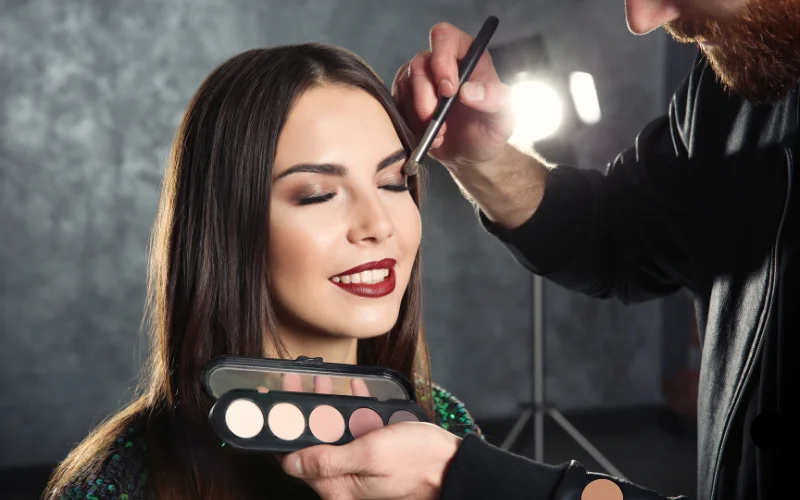
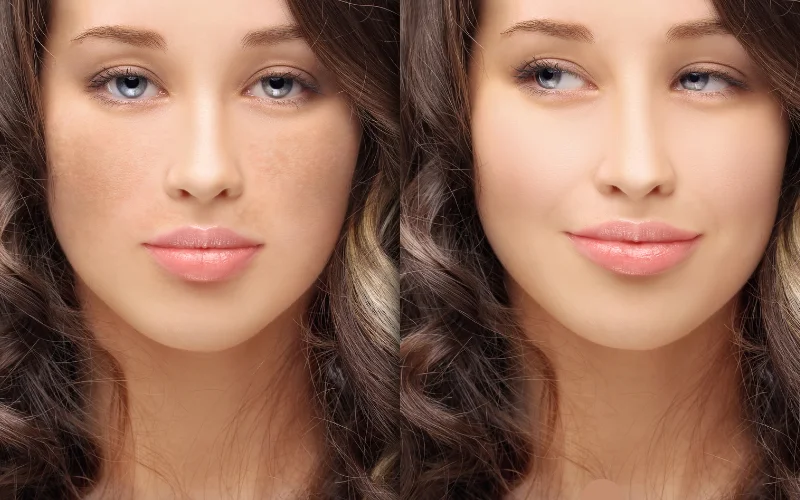
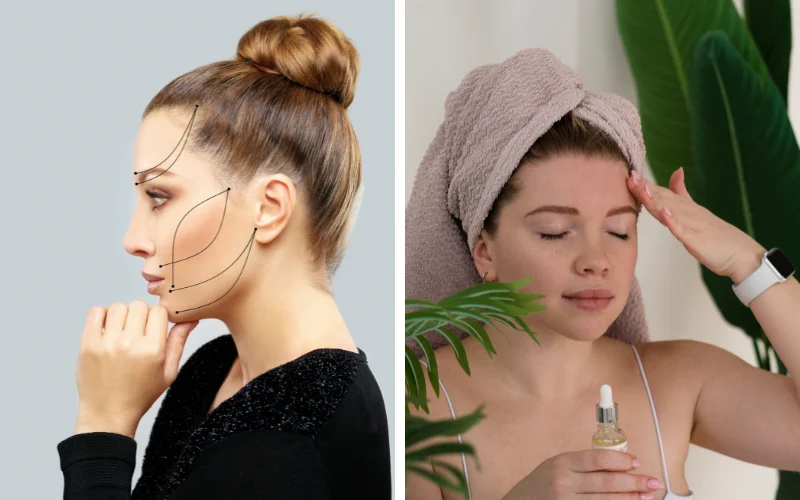
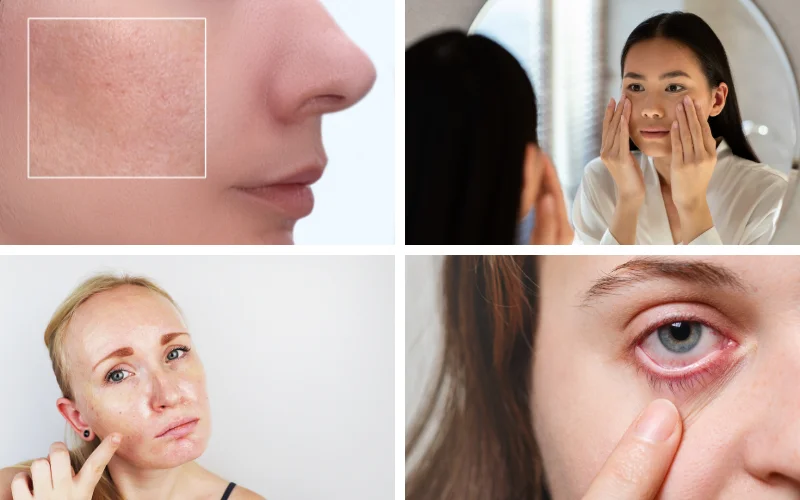

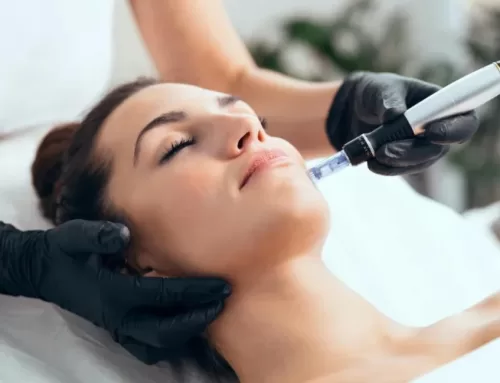



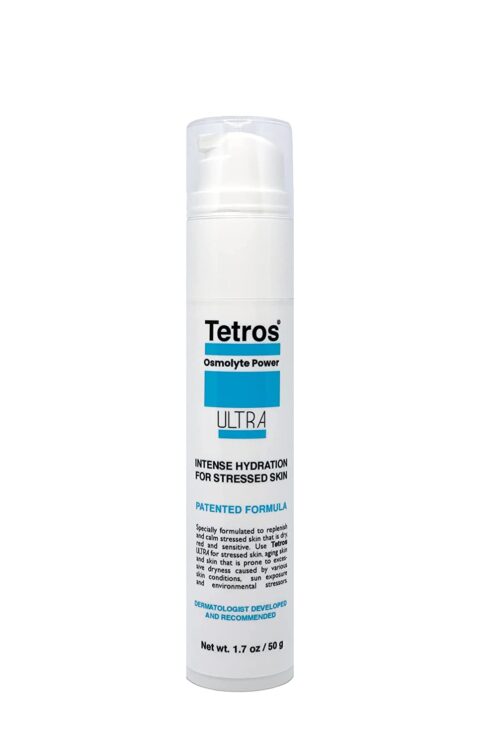
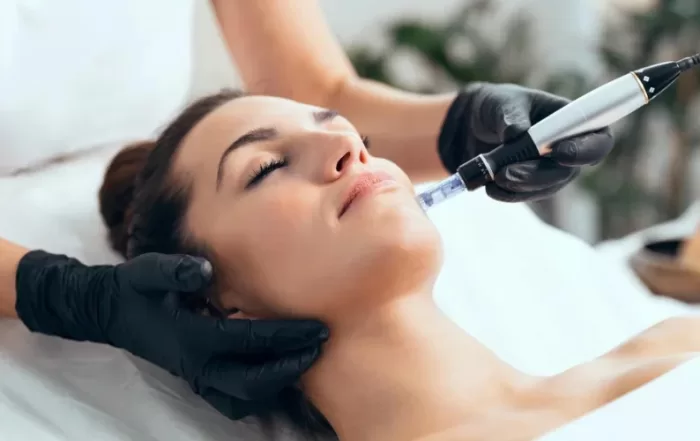

Leave A Comment